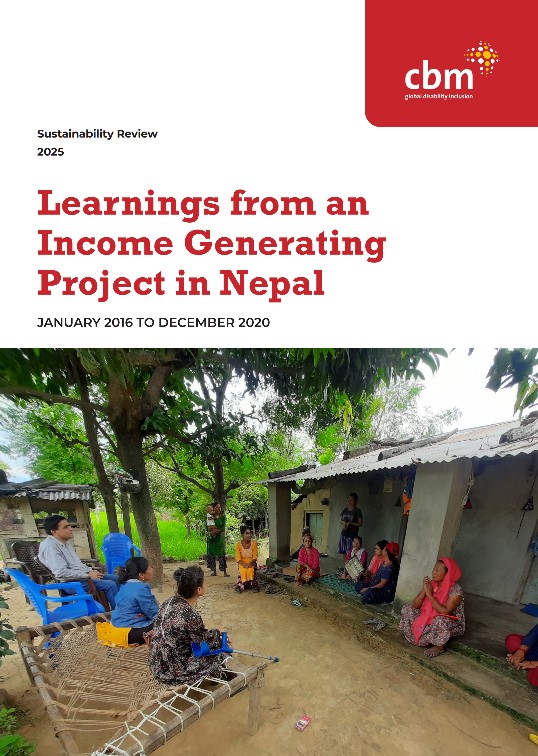
From January 2016 to December 2020, CBM Nepal supported the second phase of Saksham Mahila project, aimed at empowering people with disabilities – particularly women – by boosting their socio-economic status and political engagement. Implemented by the Nepal Disabled Women Association, the project established Self-Help and Savings and Credit Groups, supported small business opportunities, and improved access to inclusive services. However, three years after the project’s end, only five or six of the 42 Self-Help Groups established remain active, and the one cooperative established is no longer operational. Of the nine small business owners interviewed, all have kept their businesses running, with some still involved in Saving and Credit Groups. While there was a moderate shift towards more disability inclusive practices within community service providers, maintaining this progress remains a challenge for some local governments. This report identifies key elements that have either contributed to or undermined the sustainability the project achievements, and forms part of a broader CBM Global Sustainability Enquiry looking at the sustained impact of our international projects after CBM’s involvement ends.
Want to read more from our Sustainability Enquiry series? Ongoing Changes in Community Mental Health Approaches in Aceh
